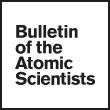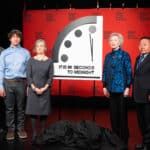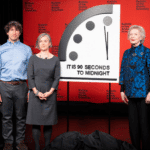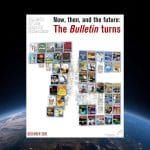World leaders line up to sign nuclear ban treaty
By Tim Wright | September 20, 2017
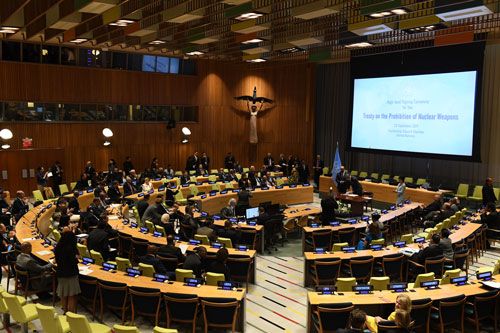
Amid deepening anxiety over the risk of war between the United States and North Korea, much of the international community is embracing the new Treaty on the Prohibition of Nuclear Weapons. This historic global agreement formally opened for signature at UN headquarters on Wednesday.
Presidents, prime ministers, foreign ministers and ambassadors from 50 nations lined up to ink the accord, affirming their commitment to disarmament and categorically rejecting, for all time, the most destructive weapons ever created. More leaders are expected to sign in the coming days and weeks.
The signatories hope that, over time, the treaty will establish a powerful global norm against the use and possession of nuclear weapons by any state. Their ultimate objective: to convince all the world’s nations to sign and comply with the treaty, eliminating the nuclear-weapon threat completely.
At the signing ceremony, UN Secretary-General António Guterres declared the treaty open for signature. “There remain some fifteen thousand nuclear weapons in existence,” he reminded those gathered. “We cannot allow these doomsday weapons to endanger our world and our children’s future.”
Peter Maurer, the president of the International Committee of the Red Cross, also participated in the ceremony. “Humanity simply cannot live under the dark shadow of nuclear warfare,” he said, describing the new treaty as a light “illuminating a pathway towards a world without nuclear weapons.”
Of the 50 nations that signed the treaty on Wednesday, three—Guyana, the Holy See, and Thailand—also deposited their instruments of ratification, thereby formally consenting to be bound to the treaty. Once 50 such instruments have been deposited, the treaty will enter into legal force.
The large number of signatures on the opening day is a remarkable show of support for a treaty that fundamentally challenges the status quo in nuclear diplomacy—one that goes beyond traditional arms control and non-proliferation approaches and embraces an abolitionist agenda.
In the weeks leading up to the ceremony, the United States worked energetically to dissuade nations from signing, perhaps with the aim of preventing it from entering into legal force. But its behind-the-scenes lobbying appears to have been largely unsuccessful.
If ever there were a moment for leaders to declare their total opposition to nuclear weapons, it is now. The dire international security environment is precisely why this treaty is such a vital initiative.
This post is part of Ban Brief, a series of updates on the historic 2017 negotiations to create a treaty banning nuclear weapons. Ban Brief is written by Tim Wright, Asia-Pacific director of the International Campaign to Abolish Nuclear Weapons, and Ray Acheson, director of Reaching Critical Will.
Together, we make the world safer.
The Bulletin elevates expert voices above the noise. But as an independent nonprofit organization, our operations depend on the support of readers like you. Help us continue to deliver quality journalism that holds leaders accountable. Your support of our work at any level is important. In return, we promise our coverage will be understandable, influential, vigilant, solution-oriented, and fair-minded. Together we can make a difference.
Keywords: TPNW, Treaty on the Prohibition of Nuclear Weapons
Topics: Announcement


